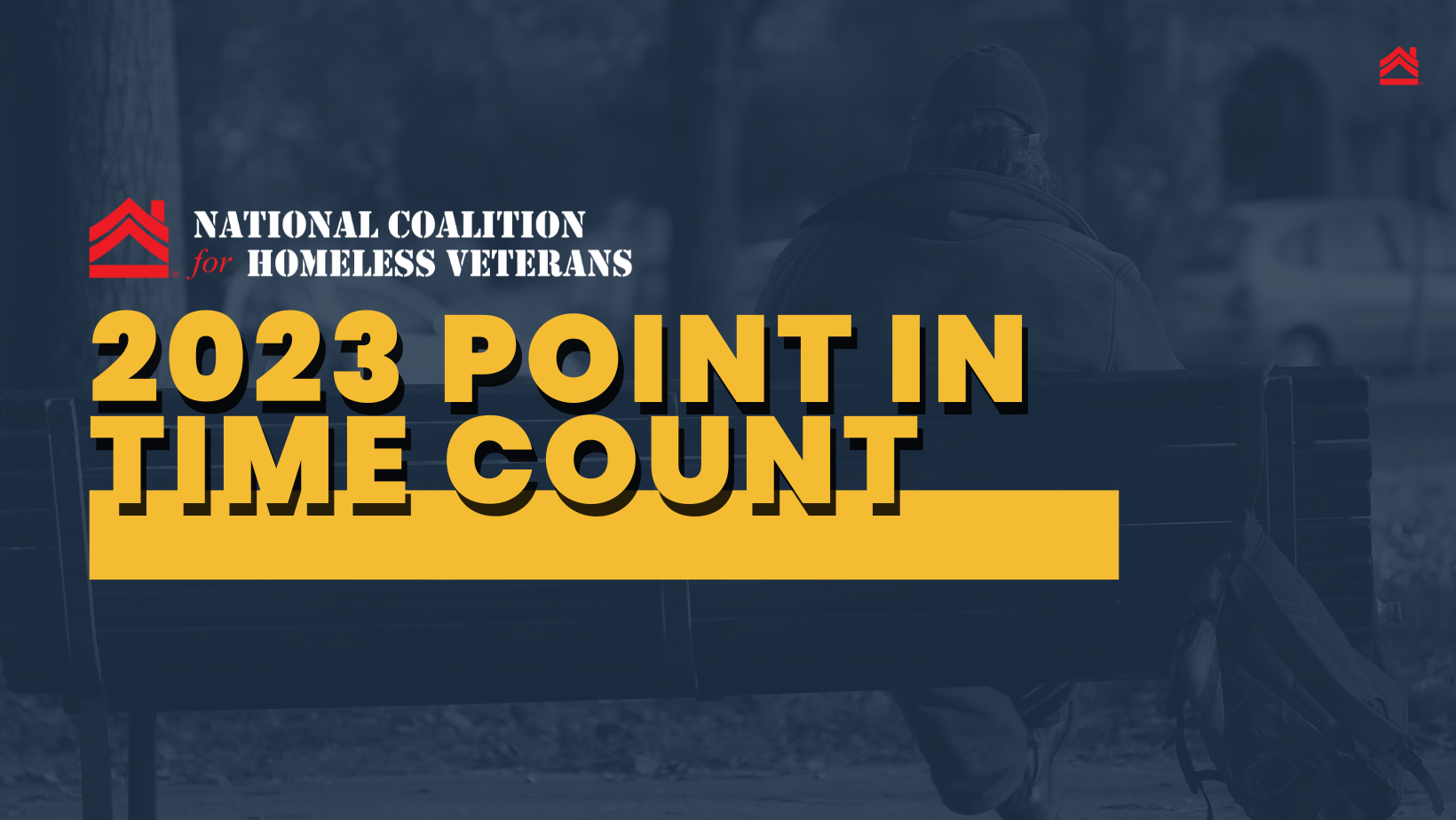
PIT Count highlights what needs to be done to End Veteran Homelessness
These numbers reflect what many have long known, we are facing a crisis of housing affordability. NCHV, our members across the country, and our national partners have long sounded the alarm regarding the seriousness of this crisis and the need for further and deeper federal investment in solutions. The Public Health Emergency showed what was possible when the nationwide housing crisis is treated like an emergency.
Today, the Department of Veterans Affairs (VA), the Department of Housing and Urban Development (HUD), and the U.S. Interagency Council on Homelessness (USICH) announced preliminary results for veterans of the 2023 Point-in-Time Count. Results of the report showed an 7% increase in veteran homelessness in 2023 and a 12% increase in overall homelessness.
These numbers reflect what many have long known, we are facing a crisis of housing affordability. NCHV, our members across the country, and our national partners have long sounded the alarm regarding the seriousness of this crisis and the need for further and deeper federal investment in solutions. The Public Health Emergency showed what was possible when the nationwide housing crisis is treated like an emergency.
Resources were mobilized and we saw record lows in veteran homelessness. The 2022 PIT Count reflected this. The number of veterans without permanent housing was 33,136-down from 37,252 in 2020. This decrease represented a 55.3% drop in veteran homelessness since 2010 and a 11% drop since 2020, which was the biggest reduction in 5 years.
PIT count results from prior years have shown us what works for veterans – consistent investment in housing supports, subsidies, and production in conjunction with a housing first-oriented system of care and national and local leadership. The 2023 PIT Count is evidence of what does not work – intentional policy choices that disinvest from the social safety net, that criminalize homelessness, that reverse years of progress and disproportionately harm the Black, Latinx, and indigenous communities have led us to this current crisis.
We now have an opportunity to use what was learned from the Public Health Emergency to bolster the supports available to veterans so they can have a safe and affordable place to call home. The Administration and Congress should heed continued warnings that a lack of investment and programmatic change will continue to be disastrous for veterans facing housing instability. Congress must restore expired pandemic-era legislative provisions to improve veteran access to both transitional housing and supportive services.

